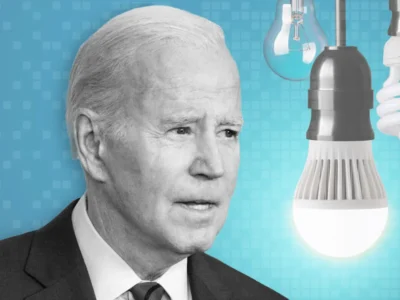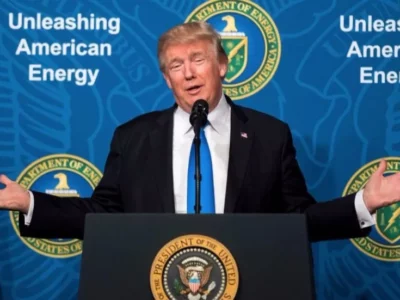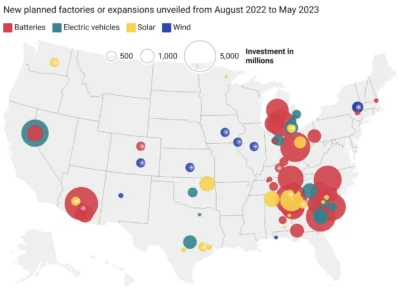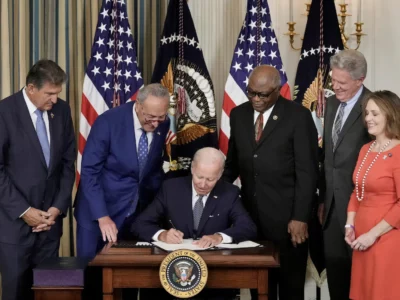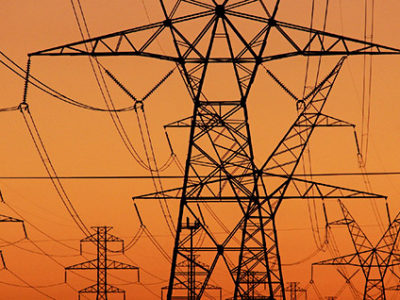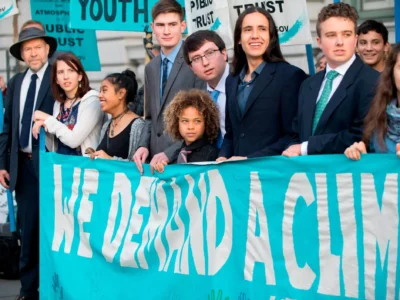Federal Climate Policy
Luminosity
The story behind today’s energy efficient lighting and a forgotten episode in the culture wars.
The conservative fight to save an obsolete lighting technology – the incandescent bulb — has something to tell us about current environmental disputes and the nature of culture wars.
CONTINUE READINGHillary Clinton, Climate Change, and the ‘Sliding Doors’ of History
Here’s what could have happened instead of Trump’s crusade against climate action, if Clinton had squeaked out a victory in 2016.
If Hillary Clinton had won, we would be much further along today in the battle to cut carbon emissions and control climate change. Instead, Trump was a climate disaster. The bottom line: Elections do matter. Not just for politicians but for all of us.
CONTINUE READINGHypothetically Speaking: What if Trump Had Won in 2020?
In terms of climate policy, the short answer is “nearly total destruction.”
Trump’s end point from his first term — zeroing out federal climate action — would have been his starting point after reelection. The next steps would have been an effort to end state-level and private climate action, and a massive increase in oil & gas production and use.
CONTINUE READINGCan the IRA Trump-Proof Itself?
Building A Political Firewall Against IRA Repeal
Biden’s signature climate law, the Inflation Reduction Act, is squarely in Donald Trump’s sights. There is certainly a risk that a GOP sweep in November would result in repeal, as I’ve written before. Yet there are increasing signs that the IRA has created a powerful political constituency deep in Republican domains. This will make repealing …
Continue reading “Can the IRA Trump-Proof Itself?”
CONTINUE READINGWhy a Bird in the Hand is Worth Two in the Bush — Especially When the Issue is Climate Change
Climate action is too urgent to insist on waiting for perfect solutions
It’s an ancient dispute: Should we compromise on half-measures, or hold out until we can get something a lot better? Idealists argue for holding out. Pragmatist argue that half a loaf is better than none. Rather than rehearse familiar arguments, I want to focus specifically on climate change. In my view, holding out for ideal …
CONTINUE READINGTrump’s War on Environmental Protection: A Chronology
Yes, there were over 100 environmental rollbacks. Here are the biggest.
From when he took office to the day he left, Trump lead a steady drumbeat of environmental rollback after environmental rollback. His goals: eliminate limits on pollution from fossil fuels and end protection of public lands.
CONTINUE READINGHere’s the Most Important Climate Bill of 2024
The Farm Bill proposal being pushed by House Republicans cuts climate programs and boosts factory farms. Congress should listen to the hundreds of chefs who are calling for climate fixes.
Normally, you don’t want too many cooks in the kitchen. It spoils the broth, as the saying goes. But when it comes to debating, amending, and rewriting the U.S. Farm Bill, lawmakers in Congress need all the help they can get. Congress should listen to the hundreds of chefs and food industry pros who are …
Continue reading “Here’s the Most Important Climate Bill of 2024”
CONTINUE READINGImportant Progress Toward a Climate-Ready Grid
New transmission is crucial. This is how FERC is starting to address the problem.
We urgently need more transmission to accommodate renewable energy, increased energy demand, and grid resilience to climate disasters. Yet the transmission approval process has been badly broken, often favoring small projects that plump up utility profits but do little to address longterm or regional transmission needs. Last week, the government took steps to improve permitting …
Continue reading “Important Progress Toward a Climate-Ready Grid”
CONTINUE READINGNinth Circuit Short-Circuits Juliana v. U.S. Climate Change Lawsuit
Iconic Children Plaintiffs Lack Legal Standing to Pursue Case, Court of Appeals Rules
Earlier this month, the U.S. Court of Appeals for the Ninth Circuit issued an order that likely ends one of the most closely-watched climate change lawsuits in recent American legal history: Juliana v. United States. The background of this litigation–which was filed in federal district court in Oregon in 2015–has been analyzed at length in …
Continue reading “Ninth Circuit Short-Circuits Juliana v. U.S. Climate Change Lawsuit”
CONTINUE READINGPouring Gas on a Five Alarm Fire
That’s Trump’s climate policy in a nutshell. His campaign slogan should be, “Burn, Baby, Burn.”
At a dinner for oil industry CEOs last week, Trump promised to fulfill the industry’s every dream in return for a billion dollars in donations. We urgently need now is more federal climate action, not less. Yet the reelection of Donald Trump would wipe out years of federal climate action. It’s important to understand fully …
Continue reading “Pouring Gas on a Five Alarm Fire”
CONTINUE READING



